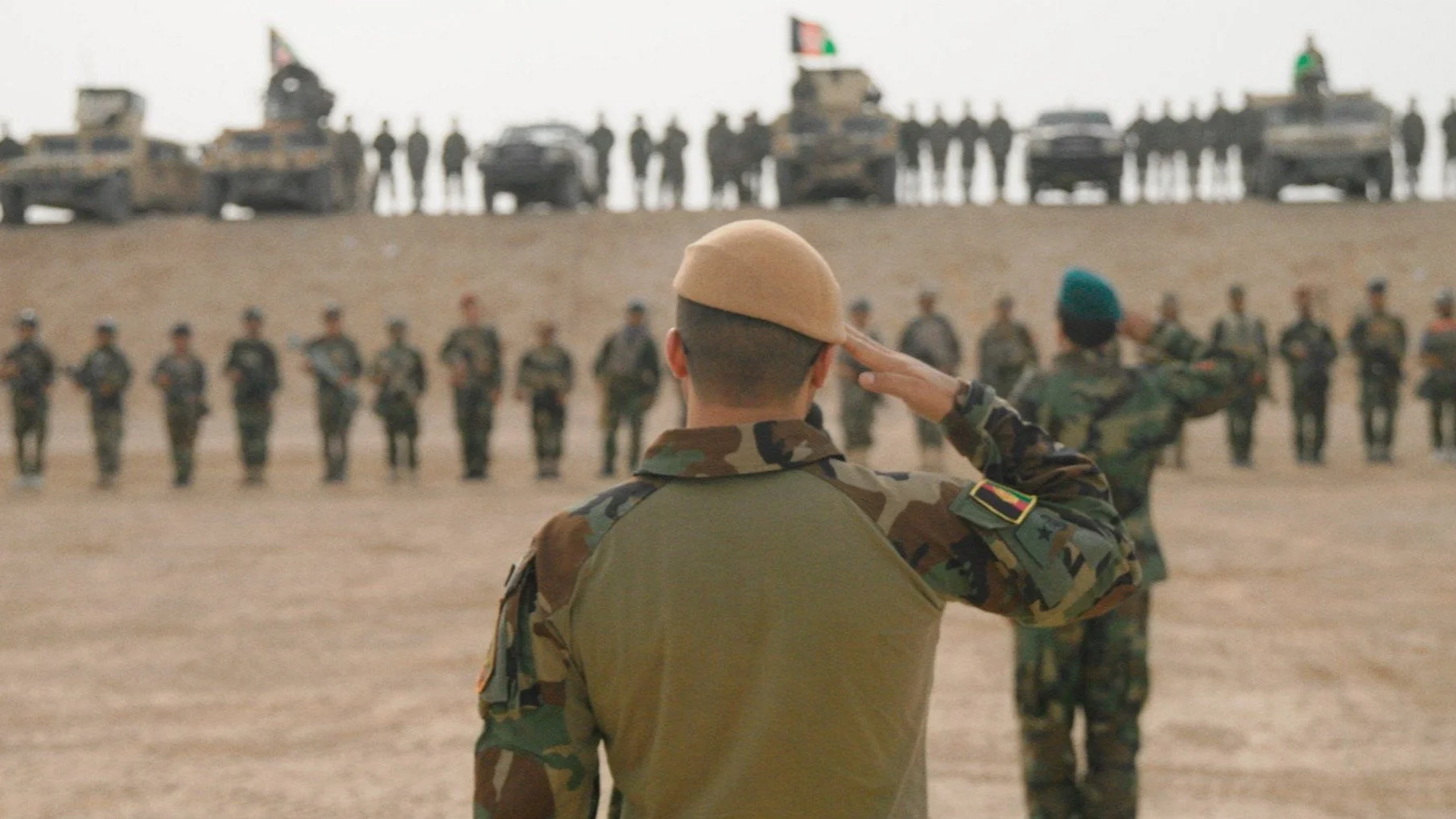Retrograde
Matthew Heineman’s latest documentary examines Afghanistan in 2021 as seen through the eyes of the soldiers.
The American Matthew Heineman is not just a director who specialises in documentaries but somebody who, like many a journalist, will put himself in dangerous situations in furtherance of reporting. Cartel Land (2015) took him to the US/Mexican border to study the drug trafficking there; City of Ghosts (2017) found him going undercover with Syrian activists seeking to expose the propaganda of the Islamic State and in The First Wave (2021) he recorded Covid's impact in New York. He may have surprised his admirers by directing a drama with actors in 2018 but significantly the film in question was A Private War which told the real-life story of the heroic war correspondent Marie Colvin.
His latest work could almost be said to find him following her example since Retrograde takes him to Afghanistan. Initially it records the rapport between the Afghan soldiers in Helmand province and the Green Berets, the members of the US Special Forces units who trained them. We see this happening in January 2021 before the unexpected decision taken by President Biden to withdraw the Americans from participation in a war that had gone on for some twenty years. Heineman, once again involved as a photographer and as an editor in addition to being the director and a co-producer, went on to record the steps that immediately followed: the requirement to burn papers and to destroy ammunition and computers to prevent them subsequently falling into the hands of the Taliban.
Before seeing Retrograde I had gained the impression that its main subject would be the final stages in this relationship between Afghan and American soldiers. But that is not altogether the case. Rather than starting with the footage from January 2021, the film first shows us brief scenes at Kabul airport the following August when American troops had returned to help evacuate those seeking to leave the country. Further powerful images depicting this terrible situation in which the demand far exceeded what was possible bring the film full circle by concluding it. Nevertheless, the greater part of Retrograde set in June 2021 and thereafter portrays the efforts of the Afghan soldiers going it alone as they continue the fight to prevent the Taliban taking over the country and destroying its freedoms. In showing this, the film becomes a portrait of the man who was the head of the Special Operations Command of the Afghan National Army, General Sami Sadat. We hear him at intervals giving his thoughts in voice-over and see him in charge in scenes which reveal him to be a determined but considerate commander. We witness his concern for his wounded men, observe him as he takes tactical decisions and at times find ourselves in the front lines. This is vivid stuff and Heineman and his colleagues must have been at risk themselves in order to capture it.
My own response to this film is undoubtedly coloured by my huge admiration for the recent documentary My Childhood, My Country: 20 Years in Afghanistan. In so far as that film concentrated on the experiences of somebody growing up there in the present century, it had a very different aim. That was to show the impact that the war had on a young male civilian whose life was recorded in some detail while his personal story also shed a deep and poignant light on conditions in the country generally. In contrast to that Retrograde puts its focus squarely on soldiers and even its sympathetic portrait of Sami Sadat concentrates exclusively on his situation as a military commander (at one point he talks to his father on the telephone and we do learn that he has a family of his own, but that's all in terms of his private life.) Consequently, the depth of individual empathy is less here, but anyone drawn to a film that takes a close look at a war of attrition will find that in that respect Retrograde delivers. Indeed, one aspect of it that is striking is the revelation of the extent to which the Afghan soldiers draw strength from their religious beliefs. To prefer the other film is doubtless a matter of personal taste based on which approach to the tragic circumstances of life in Afghanistan appeals the more. In addition, I found myself frequently conscious of Heineman’s aesthetic choices here both in the compositions and in the editing whereas in The First Wave the sense of just being present was paramount – but again it's probably a question of personal preference and for some the arty approach may be the more appealing.
MANSEL STIMPSON
Featuring General Sami Sadat, Lt. Col. Matthew Chaney.
Dir Matthew Heineman, Pro Matthew Heineman and Caitlin McNally, Ph Tim Grucza, Matthew Heineman and Olivier Sarbil, Ed Pablo Garza, Matthew Heineman and Grace Zahrah, Music H. Scott Salinas.
Our Time Projects /National Geographic Documentary Films-Dogwoof Releasing.
94 mins. USA. 2022. UK Rel: 11 November 2022. Cert. 15.


